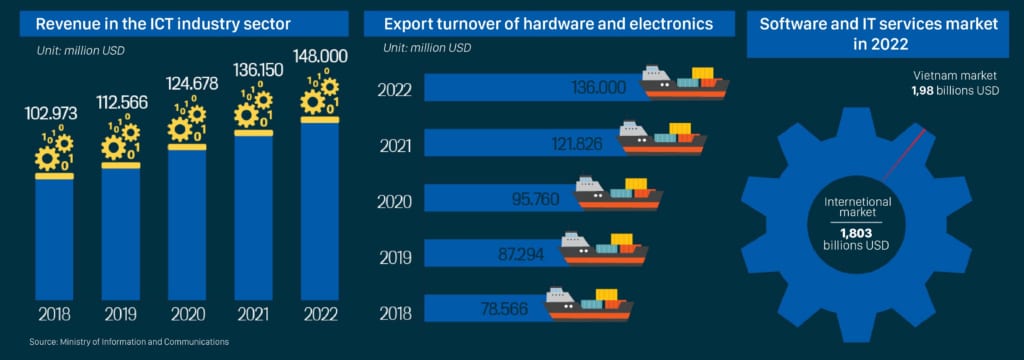Never before have Vietnamese digital technology companies, with their strengths in human resources, a large team of dynamic and creative engineers, and competitive IT service costs had so many opportunities to go global as they do now – when the demand of the global market is almost limitless. So what do Vietnamese digital companies need to prepare before entering the global market?

Vietnamese businesses have many competitive advantages
Sharing with VnEconomy e-magazine, Mr. Nguyen Tan Minh, Deputy General Director of GMO-Z.com RUNSYSTEM, said: “Vietnam is becoming one of the emerging technology centers in Asia, with many startups and technology businesses developing strongly.
In my opinion, Vietnamese technology businesses have many potential opportunities and competitive advantages when entering the global market.
Firstly, Vietnam is one of the countries with low labor and production costs in the region. This helps businesses to provide products and services at lower prices than their competitors in developed markets.
Secondly, Vietnam has abundant human resources, young and dynamic labor force, many of whom are highly trained in science, technology, business, and marketing. Vietnamese businesses can leverage the talent and intelligence of these employees to develop new technology products and services.
Thirdly, with the rapid development of the economy, Vietnam is becoming one of the most potential markets for technology businesses. Vietnamese businesses can fully utilize this opportunity to develop their business operations and expand their market.

I believe that Vietnamese businesses have many competitive advantages in the digital transformation “battle”. However, to leverage these advantages, Vietnamese digital technology businesses need appropriate business strategies, a focus on investing in research and development to improve the quality of their products and services, and to meet strict international market standards.
To succeed in accessing international markets, Vietnamese digital technology businesses need to invest in research and development to improve the quality of their products and services and must have a clear understanding of the target markets and customers. These businesses can also seek partners in target countries to expedite the market penetration process. In addition, Vietnamese businesses need to fully comply with the legal regulations and requirements of the markets they want to access. For example, to tap into the Japanese market – one of the large markets with significant potential for digital transformation solutions – Vietnamese businesses need to pay attention to important factors such as business culture, language, and Japanese culture, as well as legal and regulatory issues.”



